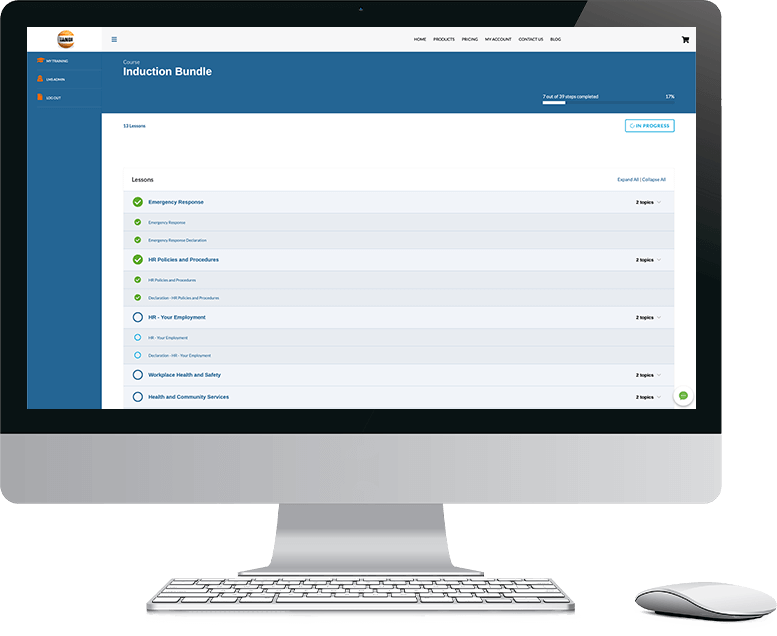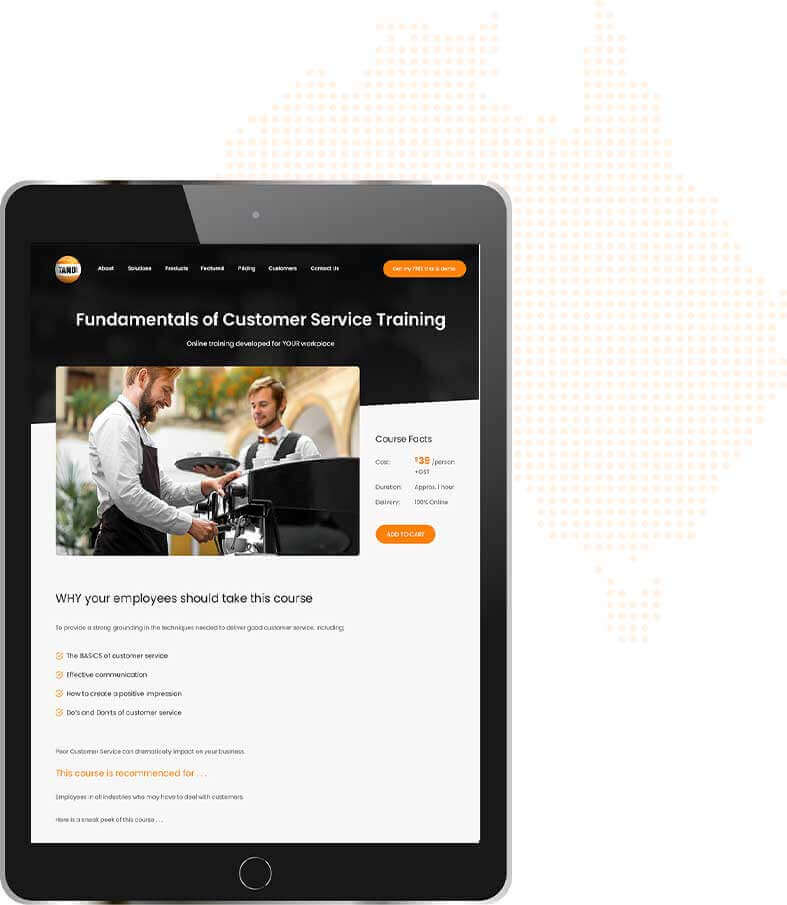If you have employees to train, you need TANDI
Our Online Training Management System makes it easy for any business
to deliver and track employee training
Build skills and help your employees and organisation grow with online training!
Tap into a comprehensive suite of online employment training courses, developed by HR and Work, Health and Safety experts.
All courses are specifically designed to assist business owners, managers, and their employees to get the very best from their team and in meeting Work Health & Safety and Employment legislation in Australia.
Save time, money, and effort with our all-in-one system for employee training and development.
Are you ready to see how easy your employee training and onboarding can be?
Here's what TANDI can do for you!
Our employee induction and industry-specific workplace training is designed to suit any business. Our eLearning environment has everything you need, including;
Perfect for any industry
TANDI offers industry-specific staff training, including:
Whatever industry your business is in, we’ll have a solution for you


Eliminate tedious processes with our fully-automated systems
Don’t waste time repeating the same processes again and again. With TANDI’s fully customisable training and induction systems, you can create a standardised process for your business, and then use it over and over. No more printing handouts and no more repeating the same induction speeches.
We’ll ensure you’re compliant, rather than liable
Current Australian laws hold employers accountable if something goes wrong
at work that causes an injury or death.
In Queensland and the ACT, you could be charged with
Industrial Manslaughter if you can’t prove an employee was
properly trained in the event of a death at work.
Don’t risk a Work Safe Investigation (or worse), all because of a lack of training
and compliance. We track all of the latest changes in legislation in each state
and territory of Australia to keep your training up-to-date.

Get started in just 3 simple steps:
We’ve made it easy to get your business legally compliant and saving
money (and all without a contract or upfront payment)

About TANDI
TANDI was founded in 2016 by HR & WHS compliance experts. Our
goal is to make online training easy to access and affordable for ALL sized businesses.
Serving businesses Australia-wide as well as overseas, we’ve taken the
industry by storm with our innovative platform and affordable pricing.




